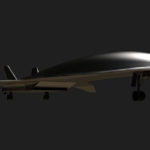World’s first all-electric jet-powered five-seater air taxi can travel to 300km in 60 minutes with zero operating emissions
Munich-based startup Lilium has revealed its new five-seater air taxi prototype which has been unveiled after completing its maiden flight in Germany earlier this month.
The full-scale, full-weight prototype of the Lilium Jet is powered by 36 all-electric jet engines that allow it to take-off and land vertically, while achieving efficient horizontal, or cruise, flight. The aircraft has no tail, no rudder, no propellers, no gearbox and only one moving part in the engine. A statement issued by Lilium said that this not only contributed to the safety and affordability of the aircraft, but it has also allowed the design team to focus their efforts on improving customer experience in the cabin, with panoramic windows and gull-wing doors. The five-seater Lilium Jet was built following the successful flight testing of a two-seater prototype in 2017.
Making urban air mobility a reality
Daniel Wiegand, co-founder and CEO of Lilium, said: “Today we are taking another huge step towards making urban air mobility a reality. In less than two years we have been able to design, build and successfully fly an aircraft that will serve as our template for mass production.”
“Moving from two to five seats was always our ambition as it enables us to open up the skies to many more travellers. Whether its friends or families flying together or business travellers ride-sharing into the city, having five seats delivers an economy of scale you just can’t achieve with two. The Lilium Jet itself is beautiful and we were thrilled to see it take to the skies for the first time. With the perfect balance of range and speed, our aircraft has the potential to positively impact the way people choose to live and travel, all over the world.”
With a top speed of 300 km/h and a range of 300km, Lilium claims their Jet is capable of completing longer journeys than most competitor aircraft, which they attribute to its fixed-wing design. The Lilium Jet, reliant on the lift generated by the fixed wing, will require less than 10 per cent of its maximum 2000 horsepower during cruise flight. Lilium claims the efficiency is comparable to the energy usage of an electric car over the same distance.
Flight test programme
The Jet took to the air on May 4 2019, having completed extensive ground testing at Lilium’s HQ in Munich, Germany. The remote-controlled prototype has since begun a rigorous flight test campaign to prove its capability and lay the foundations for certification to safety standards, comparable to those of large commercial aircraft.
Leandro Bigarella, Head of Flight Test, said: “While a maiden flight is always a moment of truth for a business, the Lilium Jet performed exactly as expected and responded well to our inputs. Our flight test programme will now continue with increasingly complex manoeuvres as we look towards our next big goal of achieving transition flight, which is when the aircraft moves seamlessly from vertical to horizontal flight.”
Lilium plans to manufacture and operate the Lilium Jet as part of an on-demand air taxi service. Passengers will be able to use the Lilium app to locate their nearest landing pad. A network of pads across cities and regions will enable passengers to enjoy journeys which are comparable in price with a taxi, but four times faster. Lilium expects to be fully-operational in various cities around the world by 2025, with earlier trial services in several locations.
Connecting communities
Wiegand added: “We dream of a world where anyone can fly wherever they want, whenever they want. We’ve invested a tremendous amount of thought and care into designing an aircraft and a service that will let us deliver this, meeting society’s demands for urban air travel that is quiet, safe and environmentally positive. Getting to this point has meant tackling some of aerospace’s greatest challenges, but now we’re here, we can focus on bringing our vision to life and connecting communities in ways they have never been connected before.
“Whether it’s reducing the need for investment in ground-based infrastructure like road or rail, or opening up new areas to economic opportunities, we believe that urban air mobility has the potential to be a remarkable force for good in society and we look forward to working across our sector to achieve this.”
Watch FINN’s interview with Frank Stephenson, Head of Design, Lilium.

